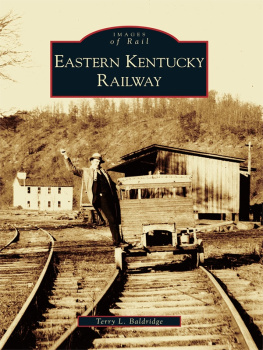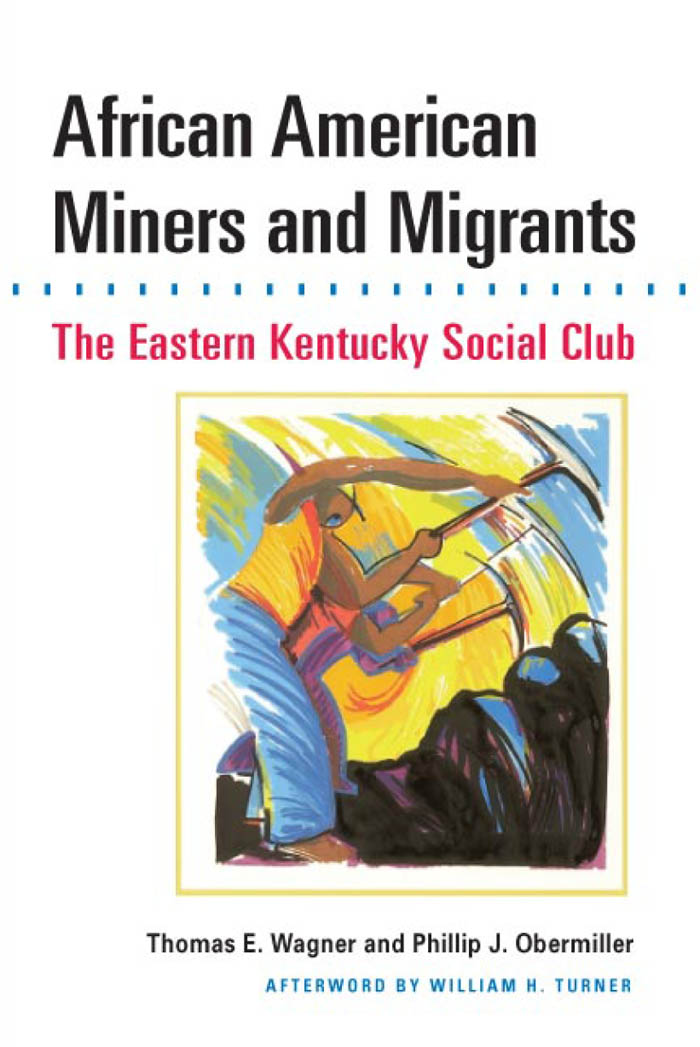Thomas E. Wagner - African American Miners and Migrants: The Eastern Kentucky Social Club
Here you can read online Thomas E. Wagner - African American Miners and Migrants: The Eastern Kentucky Social Club full text of the book (entire story) in english for free. Download pdf and epub, get meaning, cover and reviews about this ebook. year: 2010, publisher: University of Illinois Press, genre: Politics. Description of the work, (preface) as well as reviews are available. Best literature library LitArk.com created for fans of good reading and offers a wide selection of genres:
Romance novel
Science fiction
Adventure
Detective
Science
History
Home and family
Prose
Art
Politics
Computer
Non-fiction
Religion
Business
Children
Humor
Choose a favorite category and find really read worthwhile books. Enjoy immersion in the world of imagination, feel the emotions of the characters or learn something new for yourself, make an fascinating discovery.

- Book:African American Miners and Migrants: The Eastern Kentucky Social Club
- Author:
- Publisher:University of Illinois Press
- Genre:
- Year:2010
- Rating:5 / 5
- Favourites:Add to favourites
- Your mark:
African American Miners and Migrants: The Eastern Kentucky Social Club: summary, description and annotation
We offer to read an annotation, description, summary or preface (depends on what the author of the book "African American Miners and Migrants: The Eastern Kentucky Social Club" wrote himself). If you haven't found the necessary information about the book — write in the comments, we will try to find it.
Thomas E. Wagner and Phillip J. Obermillers African American Miners and Migrants documents the lives of Eastern Kentucky Social Club (EKSC) members, a group of black Appalachians who left the eastern Kentucky coalfields and their coal company hometowns in Harlan County.
Bound together by segregation, the inherent dangers of mining, and coal company paternalism, it might seem that black miners and mountaineers would be eager to forget their past. Instead, members of the EKSC have chosen to celebrate their Harlan County roots. African American Miners and Migrants uses historical and archival research and extensive personal interviews to explore their reasons and the ties that still bind them to eastern Kentucky. The book also examines life in the model coal towns of Benham and Lynch in the context of Progressive Era policies, the practice of welfare capitalism, and the contemporary national trend of building corporate towns and planned communities.
| Contents Preface Introduction 1. Going up the rough side of the mountain: African-Americans and Coal Camps in Appalachia 2. Life wasnt no crystal stair: African-Americans in Coal Towns 3. I dont know where to, but were moving: African-American Survival Strategies in Coal Towns 4. Sing a song of welfare: Corporate Communities and Welfare Capitalism in Southeastern Kentucky 5. Living tolerably well together: Life in the Model Towns Along Looney Creek 6. What kept you standing, why didnt you fall?: African- Americans in Benham and Lynch 7. One Close Community: The Eastern Kentucky Social Club 8. They love coming home: Appalachian Ties That Bind Afterword: Values, Spoken and Unspoken William H. Turner Notes Bibliography Index
Library of Congress Subject Headings for this publication: Eastern Kentucky Social Club Biography, African Americans Societies, etc, African Americans Interviews, African American coal miners Kentucky Social life and customs, Mining camps Kentucky History, Rural-urban migration United States, Mountain life Kentucky, Benham (Ky, ) Biography, Lynch (Ky, ) Biography|
Thomas E. Wagner is University Professor Emeritus of Planning and Urban Studies at the University of Cincinnati. He is coauthor (with Phillip J. Obermiller) of Valuing Our Past, Creating Our Future: The Founding of the Urban Appalachian Council and coeditor (with Obermiller and E. Bruce Tucker) of Appalachian Odyssey: Historical Perspectives on the Great Migration.Phillip J. Obermiller is a visiting scholar at the University of Cincinnatis School of Planning, and a Center Fellow at the University of Kentuckys Appalachian Center. In addition to his work with Wagner, he is coeditor (with Kathryn M. Borman) of From Mountain to Metropolis: Appalachian Migrants in American Cities and of the fourth edition of Appalachia: Social Context Past and Present (with Michael E. Maloney). William H. Turner is a member of the EKSC, president of Turner Associates in Winston-Salem, N.C., a freelance writer, and interim president of Kentucky State University. He holds Ph.D. in sociology and anthropology and was research associate to Alex Haley for ten years.
Thomas E. Wagner: author's other books
Who wrote African American Miners and Migrants: The Eastern Kentucky Social Club? Find out the surname, the name of the author of the book and a list of all author's works by series.







 This book is printed on acid-free paper.
This book is printed on acid-free paper.